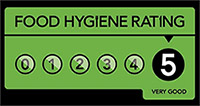FAQ

FAQ
• Is Leigh’s Bees honey raw?
Yes. However, Leigh’s Bees hasn’t previously used the word ‘raw’ on labels because there was a risk of prosecution from Trading Standards – they didn’t believe there was a difference between ‘proper’ artisanal raw honey such as ours and the horrid cheap (and often fake) gloop masquerading as honey in supermarkets. A judgement was made on 26th Feb 2024 in favour of a company using the word ‘raw’ on their labels (click here), so going forwards, we will be labelling our honey as raw where appropriate. The exception will be the Ivy honey, which because it sets hard in the hive, has to be melted off the comb. This process brings the honey to temperatures which compromise some of the enzymes within the honey. Ivy honey is however awesome and is really worth a try if you haven’t had it before.
• Why is the production method so important?
Bees create honey as an active substance containing beneficial enzymes. These enzymes are not affected by gentle warming to enable bottling. At Leigh’s Bees we bottle most of our honey at the time of extraction. We simply pass it through a coarse sieve to remove pieces of wax and natural detritus. Good quality, unprocessed honey stored in bulk is likely to set over time. It needs gentle warming to facilitate bottling.
• Is the honey pasteurised?
We do not heat-treat any of our honey (ivy is the exception), other than very gentle warming if necessary when bottling. Warming temperatures are carefully monitored so as not to destroy the natural enzymes in the honey.
• How is the honey extracted from the comb?
Once the frames of honey arrive at the Honey House they are maintained at hive temperature for a day until we spin the honey out. We do that using a rapidly rotating centrifuge which throws the honey out of the combs.
• What is the shelf life of the honey?
Still edible honey has been found in Egyptian tombs. We only put a best before date on the label because the Food Standards Agency demands it.
• Do you feed the bees?
They usually go in to winter with enough stored honey to thrive. We prefer them to overwinter on their own honey, but when weather conditions are such that there is no choice, they are fed sugar either as a liquid in the autumn, or fondant in the winter/spring.
• My clear honey has turned thick, or has crystallised. What can I do?
This is a completely natural process and the honey remains perfectly edible and delicious. If, however, you prefer clear honey, simply warm the honey very gently by standing the jar in a saucepan of hot water until it has cleared. This is not an instantaneous process. Beware over heating which can spoil the scent and flavour of the honey and damage the enzymes within.
• Why does honey crystallise?
Pure, raw and unheated honey, like ours, has a natural tendency to crystallise over time, with no adverse affect on the honey. Some honeys will crystallise uniformly, whilst others will form two layers, with liquid honey sitting on top of a crystallised layer. The two principal natural sugars in honey are fructose and glucose. The balance of these two natural sugars causes the crystallization, and the relative percentage of each determines whether it crystallizes rapidly or slowly – the more rapidly the process occurs, the finer the texture will be, and the paler the colour. What crystallizes is the glucose, due to its lower solubility. Fructose is more soluble in water than glucose and will remain fluid.
• Why is your honey so much more expensive than supermarket honey?
Our prices reflect the care, effort and time invested to bring you a superior, natural product, just as the bees made it. We keep each apiary’s nectar flows separate, rather than blending.
The majority of supermarket honeys are: “produce of EU and non-EU countries” – basically a blend of honeys from around the world, mixed to keep uniformity of taste and texture. Supermarket honeys tend to be pasteurised and have little or no enzyme activity within. In recent years there has also been an influx of ‘fake honey’, information about which can be readily found on the internet.

